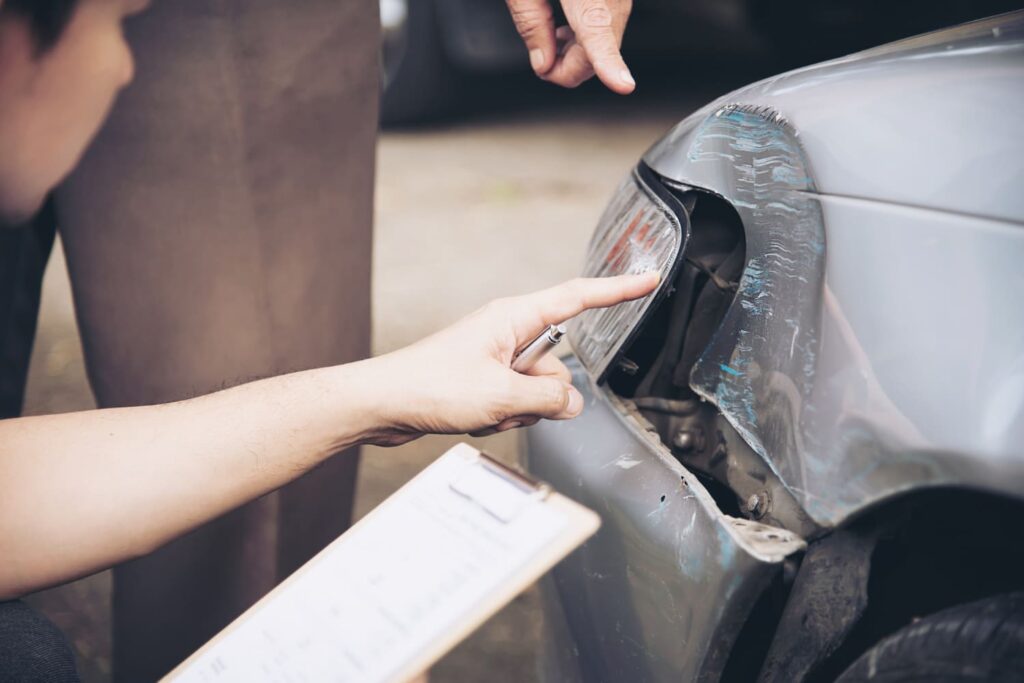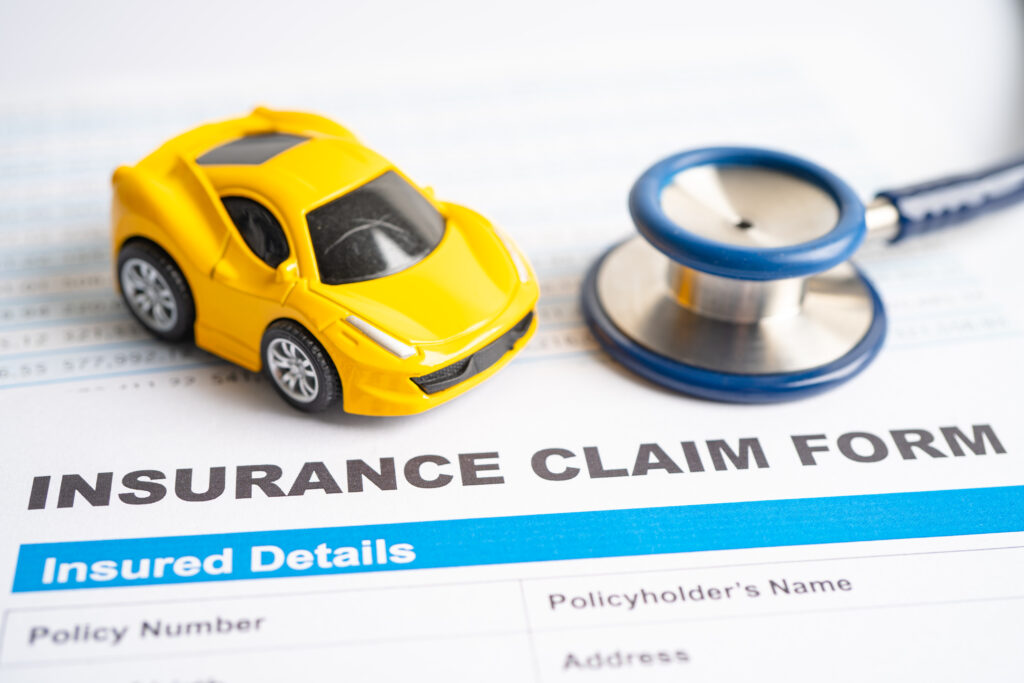Have you ever found yourself in a frustrating situation after a car accident caused by someone else? The days following a car accident can be stressful and exhausting, especially when dealing with the aftermath. One of the concerns that often arises is who will pay for the rental car while your vehicle is being repaired. Your vehicle is damaged and in need of repairs, leaving you without a means of transportation.
This typically leads to questions about whether the at-fault driver is obligated to cover the costs of a rental car. You might be wondering if the at-fault driver’s insurance will cover the cost. In Australia, the answer is generally yes! It is advisable to confirm with the insurance company for specific coverage details. So sit back, buckle up, and prepare to gain some clarity on this topic, which can often leave accident victims feeling lost and confused.
Who’s Responsible?
In Australia, the driver who caused the accident is typically liable for all resulting damages – including the cost of a rental car for the non-at-fault party. This falls under the concept of “recovery for loss of amenity,” which acknowledges the inconvenience caused by the accident.
Understanding Liability in Car Accidents in Australia
Liability refers to one party’s legal responsibility for the damages caused in a car accident. In Australia, determining fault in a motor vehicle accident can be a complex process that requires examining various evidence, including witness statements, police reports, and scene photos. The driver who caused the accident, typically due to negligence or a breach of road rules, is the liable party.
Steps to Take After an Accident in Australia

Take specific actions to preserve your safety and defend your rights following an accident. Here is a step-by-step guide on what to do after being involved in an accident:
1. Ensure all parties are safe: The well-being of all individuals involved should be the top priority. If there are any injuries, immediately call for medical help.
2. Document the accident scene: Take photos, including any vehicle damage. If possible, gather information such as the other driver’s contact details, insurance information, and eyewitness accounts. This documentation can be crucial when determining fault and proving liability.
3. Notify the police and file an accident report: Contact the police and report the accident. Even if the accident seems minor, having official information can be vital when dealing with insurance companies and potential legal proceedings.
4. Contact your insurance company: Notify your insurance company about the accident immediately. Provide them with all the necessary details and adhere to any specific reporting requirements they may have.
5. Seek legal advice: if there are complexities or disputes about fault or liability; consulting with a personal injury attorney may be beneficial. They can guide your rights and help you navigate the legal process.
Rental Car Coverage in Your Insurance Policy
Many insurance policies offer rental car coverage as part of their package. This coverage helps pay for renting a car while your vehicle is being repaired. Your insurance policy’s particular terms and conditions should be understood by reviewing it. There may be limitations or exclusions on rental car coverage, so it’s essential to be aware of the extent of your coverage.

How to Claim For Your Rental Car Expenses?
There are two main ways to claim for your rental car expenses:
1. Seeking Compensation Directly from the At-Fault Driver’s Insurance
If you are not at fault for the accident, you can seek compensation from the at-fault driver’s insurance company. Filing a claim with their insurance is the usual process for recovering damages. This includes the costs of renting a car while your vehicle is being repaired.
When filing a claim, it’s crucial to document all expenses related to the rental car. Record the daily rental fees, additional charges, and other costs incurred. This documentation will support your claim and ensure you receive the appropriate compensation.
Be prepared to provide evidence, such as:
- Police report
- Proof of ownership of your damaged car
- Rental car agreement
- Receipts for rental car payments
2. Working with Your Own Insurance Company
At times, the at-fault driver’s insurance company may be unresponsive or deny your claim. If this happens, you may need your insurance company’s help. If your policy includes rental car coverage, you can seek compensation from your insurer. However, it’s important to consider the implications of your future premiums before deciding. If you find yourself in a situation where the negligent driver’s insurance is unresponsive or denies your claim, turning to your insurance company for help is crucial. Having comprehensive coverage that includes rental car reimbursement is essential. Reviewing your policy will help you determine if you have this coverage and understand its terms and conditions.
Many car insurance policies in Australia offer “rental vehicle cover” as an optional add-on. If you have this coverage, you can claim the rental car expenses from your own insurer first. They will then typically recover the cost from the at-fault driver’s insurance company.
It’s worth noting that when your insurance company covers the costs of your rental car. They could ask the irresponsible driver’s insurance for compensation. This process, called subrogation, allows your insurance company to recover the money spent on your rental car. In this scenario, you may not have to worry about paying out of pocket for the rental car expenses.
Legal Options and Seeking Legal Advice:
Dealing with insurance providers may be a lengthy and challenging process. Getting legal advice may be a good idea if you encounter difficulties obtaining rental car coverage.
Consulting with an attorney before making any decisions about your claim is essential. They can assess your case, represent you in negotiations with insurance providers, and provide valuable advice tailored to your situation. Remember, the decisions you make after a car accident can have long-lasting consequences, so it’s crucial to have the necessary legal guidance.
Other Options:
- The at-fault driver may be uninsured or underinsured. Victims can explore other options for seeking compensation when faced with this situation. For instance, you may have coverage through your insurance policy, such as uninsured/underinsured motorist coverage. This type of coverage can help cover the costs of a rental car in situations where the driver in question lacks adequate insurance.
- It’s important to consult with an attorney when dealing with complex cases involving uninsured or underinsured drivers. They can navigate the legal complexities and help you understand your rights and options.
The best way to find out if your insurance policy covers rental cars is to review your policy. You can also contact your insurance company and ask them directly.
If the other driver’s insurance company is refusing to pay for your rental car, you should first try to negotiate with them directly. If you are unable to reach an agreement, you may need to file a claim with your own insurance company. If you have rental car coverage, your insurance company will typically pay for the rental car and then seek reimbursement from the other driver’s insurance company.
The amount of time it takes for the other driver’s insurance company to pay for your rental car will vary depending on the company and the complexity of the claim. In general, however, you can expect to receive payment within a few weeks of filing a claim.
If the other driver is uninsured or underinsured, you may still be able to get compensation for your rental car through your own insurance policy. Many insurance policies offer uninsured/underinsured motorist coverage, which can help pay for the costs of a rental car in situations where the other driver does not have adequate insurance.
If you have any other questions about rental car coverage, you should contact your insurance company. They will be able to provide you with more specific information about your policy and coverage options.
Conclusion:
Understanding liability in car accidents is crucial for ensuring the responsible party pays for the damages. While the at-fault driver’s insurance company covers the costs, following the particular steps after an accident is important to protect your rights. By documenting the accident scene, notifying the police and insurance company, and seeking legal advice if needed, you can ensure that you are advocating for yourself and receiving the appropriate compensation.
If you have been involved in a car accident, seeking professional advice tailored to your situation is recommended. Remember that taking the right actions following an accident might impact your ability to get the compensation you deserve. Stay informed, be proactive, and advocate for your rights.